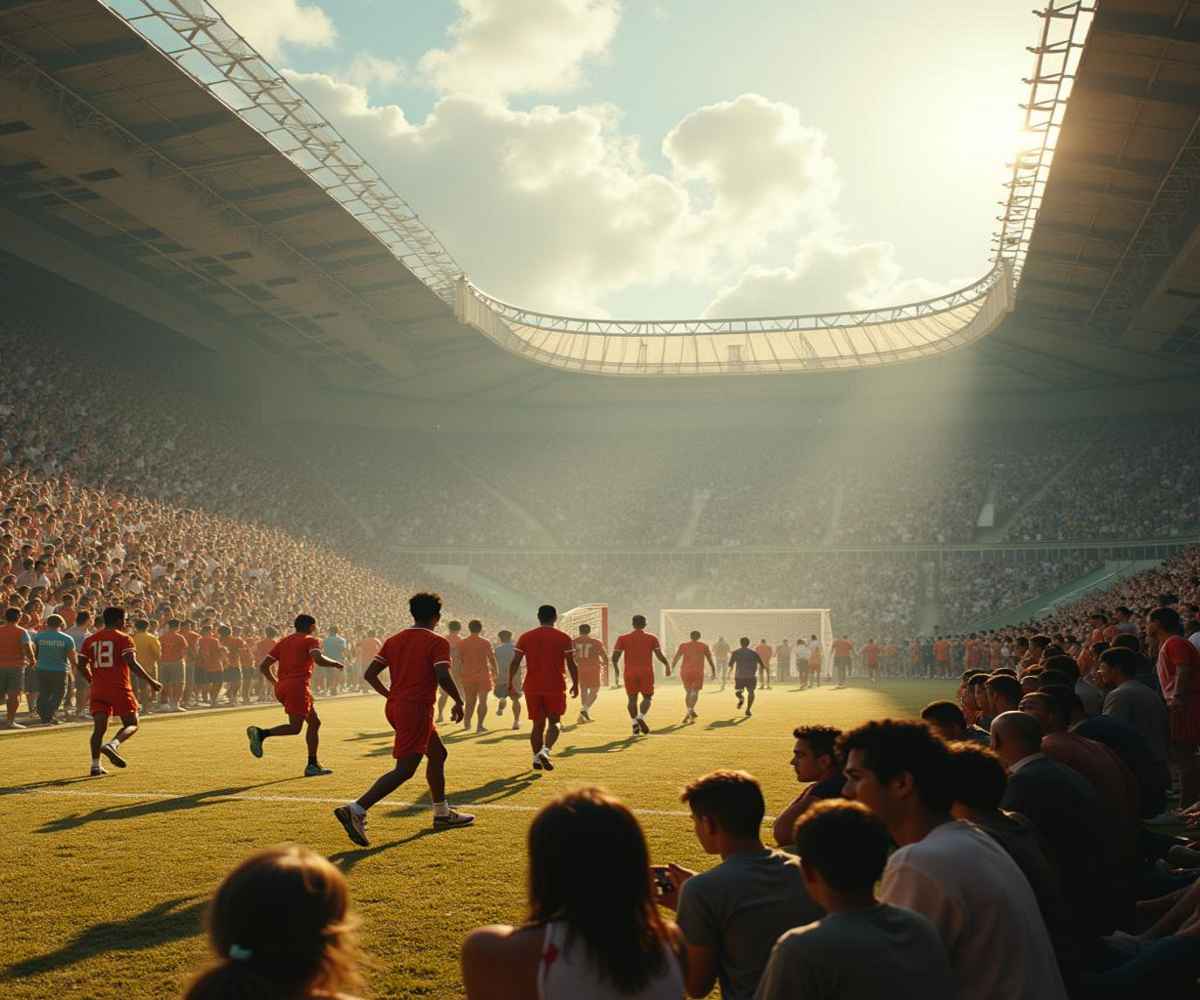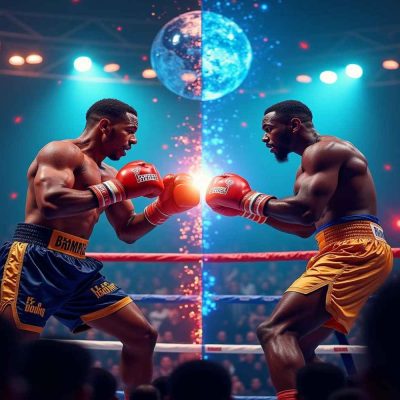The Universal Language of Sport: A Journey Through Passion, Competition, and Community
From ancient Olympic arenas to modern-day stadiums packed with roaring crowds, sport has transcended time and culture as a unifying force. It’s more than just games; it’s a reflection of human ambition, resilience, and connection. Whether you’re a weekend warrior or a casual spectator, the world of sport offers a dynamic tapestry of stories, challenges, and triumphs. Let’s explore its diverse forms, uncover its benefits, and celebrate its power to shape lives.
The Many Faces of Sport
Sport defies a one-size-fits-all definition. It thrives in countless formats, each catering to unique skills, environments, and philosophies. Take team sports, for instance, where collaboration is king. Soccer, or football as it’s known globally, unites billions through events like the FIFA World Cup, while basketball’s fast-paced drama captivates fans in arenas from the NBA Finals to neighborhood courts. American football’s strategic physicality and baseball’s timeless rhythm highlight how team dynamics vary, yet all share a common thread: the magic of collective effort.
Then there are individual sports, where athletes face the mirror of self-improvement. Tennis legends like Serena Williams or Roger Federer battle not just opponents but their own limits, turning Grand Slam courts into theaters of personal mastery. Swimming’s solitary laps and cycling’s grueling endurance races, such as the Tour de France, prove that even solo endeavors thrive on grit and focus.
For those drawn to raw intensity, combat sports offer a stage where discipline meets daring. Boxing’s sweet science has produced icons like Muhammad Ali, whose prowess transcended the ring. Meanwhile, the explosive growth of Mixed Martial Arts (MMA) through organizations like UFC showcases a modern blend of tradition and innovation. Ancient practices like karate and taekwondo remind us that combat sports are as much about mental fortitude as physical skill.
Adrenaline junkies, however, might find their calling in adventure and extreme sports. Picture surfers riding Hawaii’s legendary Pipeline waves or climbers scaling El Capitan in Yosemite National Park. These pursuits aren’t just thrills; they’re testaments to humanity’s quest to conquer fear and embrace the unknown.
Why Sport Matters: Beyond the Scoreboard
The impact of sport stretches far beyond medals and trophies. Physically, it’s a cornerstone of health. Regular activity strengthens hearts, builds muscle, and sharpens reflexes. For children, it lays the foundation for lifelong fitness; for adults, it counters sedentary lifestyles linked to modern work. But the benefits are deeper still. Studies show that sports participation lowers risks of chronic diseases like diabetes and hypertension, while improving sleep and energy levels.
Mentally, sport is a sanctuary. The rush of endorphins during a run or the zen-like focus of a yoga session can alleviate stress and anxiety. Team environments foster camaraderie, offering a sense of belonging that combats loneliness. For athletes like Simone Biles, who’ve openly discussed mental health struggles, sport becomes both a challenge and a coping mechanism—a space to reclaim agency.
Socially, sports dissolve barriers. Pickup soccer games in Rio de Janeiro’s favelas or cricket matches in Mumbai’s streets illustrate how sport bridges class and culture. Major events like the Olympic Games or the FIFA World Cup transform cities into global villages, where strangers bond over shared cheers. Even grassroots leagues strengthen communities, teaching leadership, empathy, and the art of graceful defeat.
A Glimpse Into the Arena: Sport’s Cultural Footprint
Sport’s influence permeates art, politics, and economics. Films like Remember the Titans and Creed immortalize underdog stories, while athletes like LeBron James use their platforms to advocate for social justice. The World Cup’s ability to halt wars, as seen in temporary truces during the 2018 tournament, underscores its diplomatic power. Economically, sport is a juggernaut—think of the Super Bowl’s billion-dollar ad revenues or the jobs created by marathons and cycling tours.
Yet, at its core, sport remains deeply personal. It’s the child scoring their first goal, the retiree finding joy in a morning swim, or the fan whose week is brightened by a team’s victory. This interplay between individual passion and collective celebration is what makes sport timeless.
(To be continued…)
In the next section, we’ll dive into iconic sporting events that captivate the world, explore emerging trends like eSports, and discuss how technology is reshaping athletics. Stay tuned as we unravel how sport continues to evolve—and why it will always matter.
Iconic Sporting Events: Where the World Unites
From the roar of the Olympic Stadium to the electric buzz of a World Cup final, iconic sporting events are cultural milestones that transcend borders. The Olympic Games, dating back to ancient Greece, remain the pinnacle of global unity, where athletes from over 200 nations compete under a shared banner of excellence. Moments like Jesse Owens’ defiance of Nazi ideology at the 1936 Berlin Olympics or Cathy Freeman’s symbolic victory for Indigenous Australians at Sydney 2000 illustrate how these games amplify stories of courage and justice. Similarly, the FIFA World Cup transforms host nations into melting pots of culture, as seen in Qatar 2022, where over 1.5 million fans celebrated amid a tapestry of languages and traditions. Closer to home, events like the Super Bowl blend sport and spectacle, with halftime shows headlined by icons like Rihanna and Usher becoming as iconic as the game itself. These events aren’t merely competitions—they’re stages where history is written, and humanity’s collective spirit shines.
The Rise of eSports: Redefining the Arena
As technology reshapes how we play and watch, eSports has emerged as a titan in the sporting landscape. What began in niche gaming communities has exploded into a billion-dollar industry, with tournaments like The International (Dota 2) and the League of Legends World Championship drawing viewership rivaling traditional sports. Platforms like Twitch and YouTube have democratized access, allowing fans to watch gamers like Ninja or Faker strategize in real-time. The inclusion of eSports in events like the Asian Games and its potential Olympic debut signals a paradigm shift: digital dexterity is now athleticism. Yet, this isn’t a replacement—it’s an expansion. Just as skateboarding and surfing modernized the Olympics, eSports bridges generations, inviting tech-savvy youth into the fold while challenging purists to rethink what sport can be.
Technology’s Game-Changing Play
Innovation is rewriting the rules of sport, enhancing both performance and accessibility. Wearable tech like WHOOP straps and Fitbits empowers athletes to track recovery and optimize training, while advancements such as VAR (Video Assistant Referee) in soccer and Hawk-Eye in tennis ensure fairness with pixel-perprecision. Equipment, too, has evolved: carbon-fiber bikes shave seconds off Tour de France times, and wave-pool technology allows surfers to practice inland. Beyond elites, tech democratizes participation—apps like Strava turn joggers into global competitors, and virtual reality lets amateurs step into LeBron James’ sneakers during a Lakers drill. Yet, with progress comes debate. Should records set in high-tech suits count alongside historical marks? Can algorithms ever replicate the intuition of a coach? As sport navigates these questions, one truth endures: technology amplifies human potential but never replaces the heart behind the hustle.
The Future of Sport: A Tapestry of Tradition and Innovation
As we look ahead, sport’s essence remains unchanged—it’s still about passion, perseverance, and people. Yet, its frontiers are boundless. Imagine AI coaches tailoring training to your DNA, or climate-neutral stadiums powered by renewable energy. Picture eSports arenas standing shoulder-to-shoulder with football fields, and VR making the Stanley Cup accessible to a child in a remote village. The playing field is expanding, but the goalposts stay rooted in community, health, and joy. Whether through a screen, a stadium seat, or a pair of running shoes, sport will continue to unite us—because in every sprint, swing, or strategic click, we see reflections of ourselves: flawed, fierce, and forever reaching higher.
Stay tuned as we unravel how sport continues to evolve—and why it will always matter.





